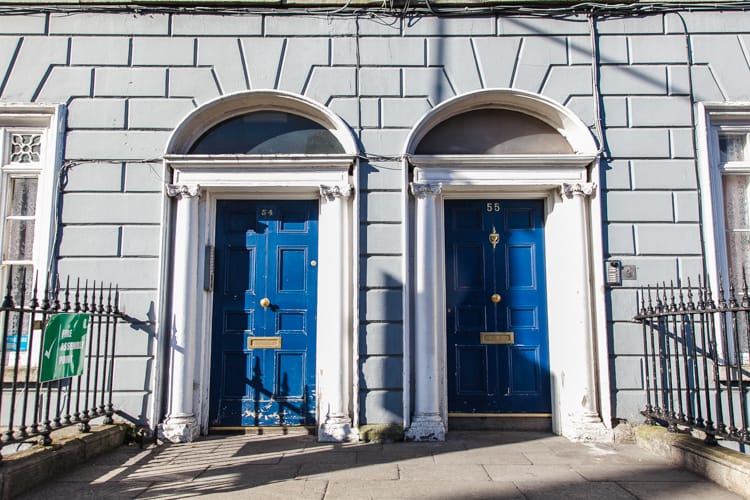What’s the best way to tell area residents about plans for a new asylum shelter nearby?
The government should tell communities directly about plans for new asylum shelters, some activists and politicians say.
It looks like the battle by the homeless families trying to avoid eviction from emergency accommodation is coming to a close.

It looks like the battle by the homeless families trying to avoid eviction from emergency accommodation at 54-55 Mountjoy Street is coming to a close.
Of the 13 families who lived there, only four remain. They said they either wanted to stay at Mountjoy Street, or get secure housing – with full tenants’ rights – in alternative accommodation.
On Tuesday, Dublin City Council made offers to these four remaining families, which they appear willing to accept, according to a press release from the Irish Housing Network – an amalgamation of 13 community and homeless-outreach groups.
Until the families get those offers in writing, though, they’ll stay in the buildings.
The homeless families were told they had to leave the Mountjoy Street premises, which has been used by Dublin City Council for years, because the landlord hiked the rent and couldn’t reach a compromise with the council. (The landlord could not be reached for comment.)
At a council meeting on Monday, this wasn’t mentioned, but Cathal Morgan of the Dublin Regional Homeless Executive told councillors that “the property owner is moving out of the business.”
When the 13 families were told, about two weeks ago, that they would have to leave their current homes, they weren’t happy.
Sure, the accommodation had rules and was old-fashioned in a way, but “even if it feels like a prison, it’s still the best emergency accommodation around,” said mother-of-one Carol McNulty.
Each apartment has its own kitchen, bathroom and more space than a hotel room. Dublin City Council offered the families alternative accommodation, but most of the 13 families found that what they were initially offered was not only more precarious, but also far from suitable.
One woman was offered accommodation in an area where she had previously been targeted and attacked. She said she wouldn’t feel safe moving back there with her children.
And another couple was even offered a hostel unsuitable for visits from their eight-month-old baby.

It’s been a noisy negotiation. Last week, the Irish Housing Network organised protests and a media campaign. Some of the families were asked to speak at the Right2Water march the weekend before the election.
And on election day, and the days that followed, dozens of people supported the families with rallies outside the two houses.
After considerable media coverage of their anger at what was on offer, the council’s homeless services came back to families with offers of more suitable temporary accommodation. All but four of the families accepted.
At Monday’s council meeting, Morgan of the Homeless Executive, said all the families were offered alternative accommodation, and in some cases two to three options were put forward.
“The best thing we can offer is to make sure that we avoid the families sleeping on the street. So in some instances, some families will have to go to a hotel. But we have offered that, and we have offered the support of the homeless action team as well,” he said.
Aisling Kenny and her partner were initially offered an apartment at St Catherine’s Gate on Parnell Road in West Dublin. On the opposite side of the city, this would involve a daily trek to where her three children attend school in Coolock.
She was then offered accommodation in a hotel closer to Coolock, but there her family would have been split between two hotel rooms. So she decided this was unsuitable as well.
So, Kenny and her family stayed in 54 and 55 Mountjoy Street with three other families. They stayed through the election date deadline to leave, the weekend and resisted an eviction on Monday.
On Tuesday evening, after waiting at the council’s Wood Quay offices all day, the council’s homeless services, met with and seem to have offered the families a deal they could live with.
At the meeting, according to a press release from the Irish Housing Network, the council agreed to put all four families on the Housing Assistance Payment (HAP) scheme, a support which helps families to secure housing in the private rental sector.
The council also agreed to assign staff to work with each of the four families so they can be housed through the HAP scheme as soon as possible, the press release said. Landlords in the city can sometimes be reluctant to deal with tenants who receive HAP support, so the council’s assistance may speed the process up.
According to the Irish Housing Network, the families will remain on the social housing list while part of the HAP scheme.